University of Lethbridge third-year nursing students bridged a partnership between Medical Mercy Canada and the Blood Tribe Department of Health as part of their community health initiative. Medical Mercy Canada provides medical supply donations such as wound care supplies and medical equipment to various countries around the world.
The connection began with the third-year nursing students who were placed with Blood Tribe Department of Health at the Lethbridge Wellness Shelter and Stabilization Unit for their community health clinical rotation. Nursing students are stationed in various clinical placements throughout their schooling, and one section of the clinical placements is a community element.
The students spent their time in four different areas at the wellness shelter: security, wellness, program facilitation and stabilization. Students placed in security assisted with the intake of guests at the wellness shelter helping those who arrive and are looking for the next step. In the wellness placement, students helped with sleeping arrangements, provided bathroom checks, and supervised the guests. Program facilitators organized health-related educational games and activities for guests to demonstrate and discuss different resources for guests. Students placed in the stabilization area, where guests have decided they want to work towards recovery and leaving the shelter, provided resources such as an addictions counsellor. The program functions as more of a rehabilitation centre, building the clients’ capacity and getting them educated and prepared. The students put together a wall of resources full of pertinent information based on topics the clients wanted to learn about.
The students’ instructor, Chloe Crosschild (BN ’14, Mn ’19), RN, a member of the Kainai Nation (Blood Tribe) and Assistant Professor, Nursing, encouraged her students to build relationships first. She wanted to use a grass-roots approach – for her students to get to know the guests and have conversations with them. At the end of the rotation, the students got together from each of the areas to discuss what they had experienced and accomplished. The students got to know the guests and clients, built those relationships and then asked what everyone’s needs were and how they could help fill those needs.
Students placed in the security section of the shelter noticed a need that far surpassed any other – wound-care supplies. Many guests come in with wounds or sores that need treatment. The nursing students wanted to find ways to provide items like Band-Aids and gauze for the clients.
The group did some research on how they could access more supplies for guests of the wellness shelter and found Medical Mercy Canada. Medical Mercy Canada is a non-religious, non-partisan, registered Canadian charity that provides supplies and services to people and communities in need. Since 1992 volunteers have been providing medical assistance, education, supplies, and funds for projects.
The nursing students reached out to discuss the possibility of providing supplies to the wellness shelter and Medical Mercy was on board! The partnership will allow for monthly deliveries to the wellness shelter, which will be ongoing after the students have finished their placement.
“The students quickly realized that their community health clinical placement was an opportunity to build bridges and create sustainable partnerships between the Lethbridge wellness shelter and community stakeholders,” says Crosschild. “This partnership would not have happened had the students not taken the leap to call Medical Mercy. They were able to see the long-term benefits of making those connections.”
Dr. Myron Semkuley, the founder of Medical Mercy, requested a meeting with the students to have them explain the role they have played at the wellness shelter. He also wanted to view the wellness shelter and see how the supplied donations have been used. Semkuley arrived with a truckload of supplies, including walkers, Band-Aids, slippers, hand sanitizer, masks and more. The students shared their experiences with the project, how these donations impacted the guests, as well as how supplies have been used.
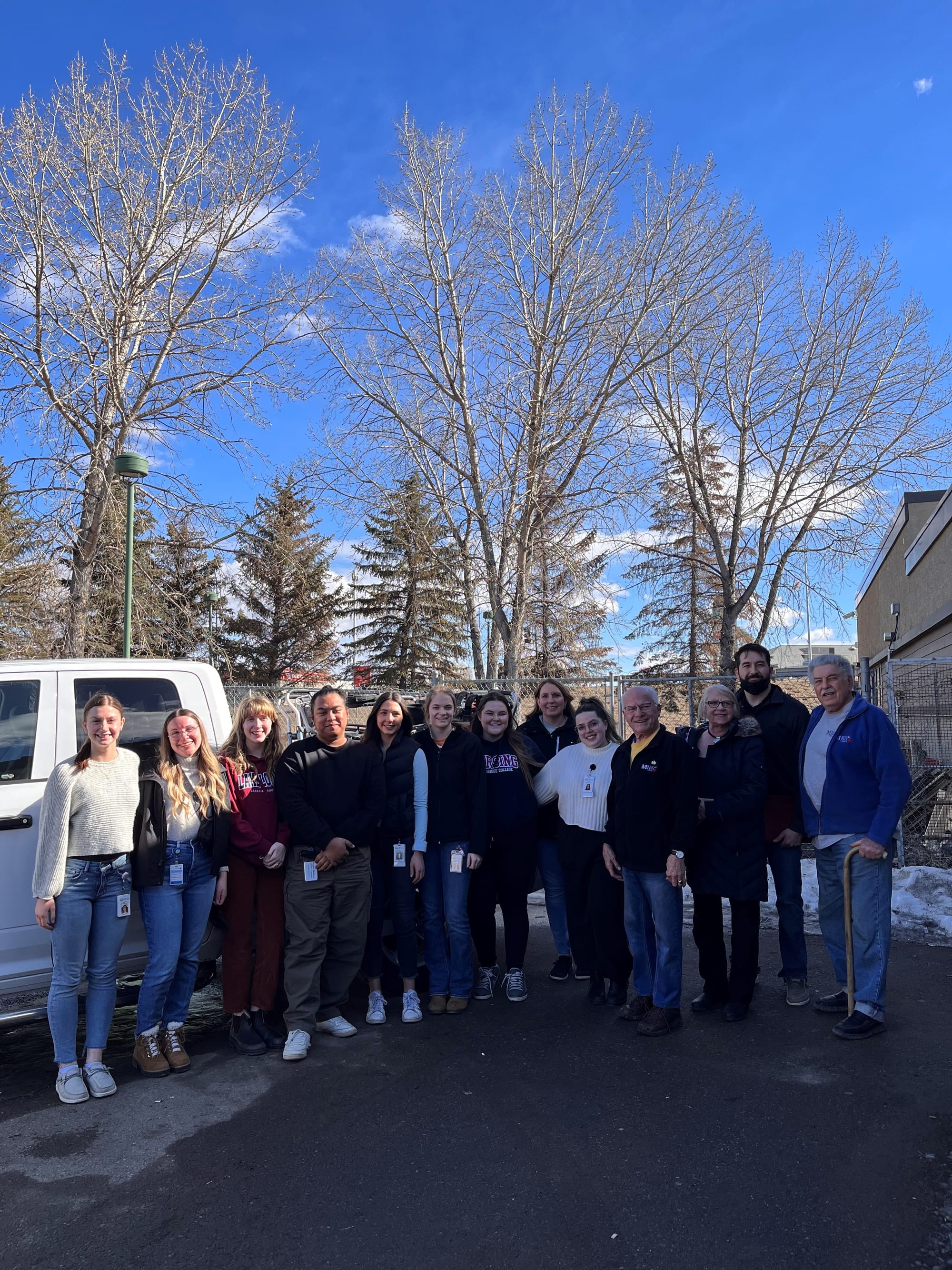
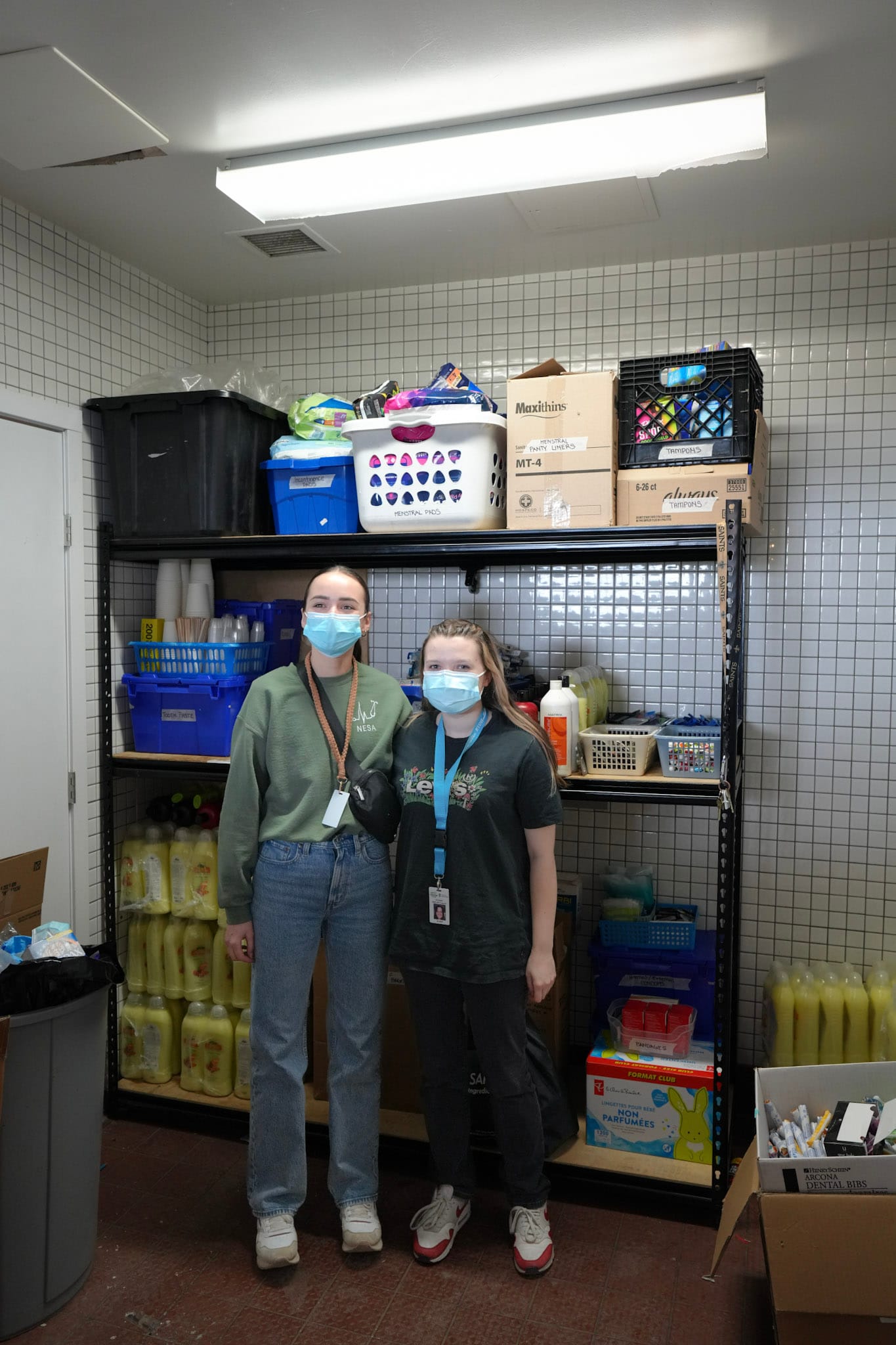
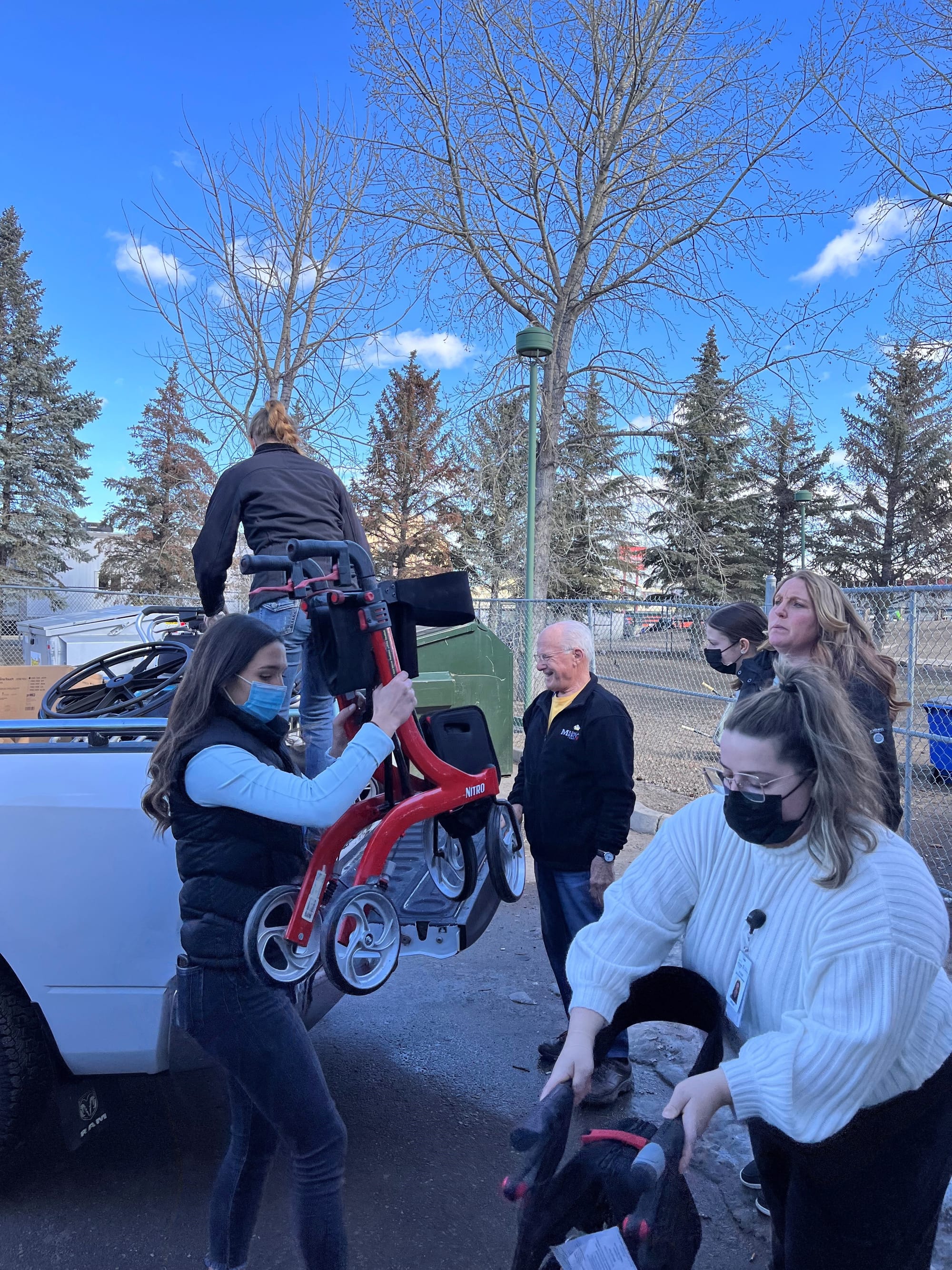
Unloading supplies donated by Medical Mercy Canada
Many students noted the increased accessibility that came along with the walkers and wheelchairs. These tools allow guests to move from place to place far more easily, and access services within the wellness shelter to their maximum ability. With the help of a walker (for someone who needs the assistance), they can access education programs and the stabilization side of the shelter, if they wish. If the guests can sleep, shower and have access to personal hygiene, they can take good care of themselves. If they don’t have those resources, they cannot. Some of the students put together medical kits with the provided supplies, which will help with wounds and cuts. These kits can be given out to guests to use on themselves, giving them autonomy and empowerment.
Kash Shade (BN ’12, MHSM ’22), RN, Chief Operations Officer at the Blood Tribe Department of Health, joined the meeting as well. The Blood Tribe Department of Health acquired management of the wellness shelter about a year ago and the department has been working towards decreasing the barriers for guests. Many of their community members struggle with substance use disorder and use the wellness shelter, so the partnership is extremely important to them.
The partnership is an extension of the relationship created between the Blood Tribe Department of Health and the University of Lethbridge, through a Memorandum of Understanding signed in January, and enhances guest care, while imparting valuable and practical teachings for the nursing students. The department is hoping to get more nurses and continue to evolve the wellness shelter. One of the nursing students noted that learning from experience has been very beneficial for them.
“Having this rotation is so different than learning about it in the classroom; it is so different seeing it,” said Reyjan Errol Jaudines.
Everyone at the wellness shelter spoke highly of the compassionate and helpful staff working there who often go above and beyond to help clients.
“There is nobody better than people who look after people in need,”– said Semkuley.
Many nursing students say they want to become a nurse because they want to make a difference. This partnership and experience is a very clear example of just how much of a difference these student nurses can make and have made here in Lethbridge.
Many of the students felt like they had learned a lot while being here, not only from the experience they were getting in the field, but also from the clients and guests staying at the wellness shelter.
“There is a lot of negative energy towards the wellness shelter, and I think people could have a lot more empathy and compassion if they were to put themselves in the shoes of the guests here,” said Denby Ettenhofer. “These are not bad people; they are just in bad situations, any one of us could be in the same situation. Knowing people care and are there and want to help makes a huge difference.”
“I have never met you before, but I am already proud of you,” Semkuley added.
I think the rest of the University community can stand by and say we are so proud and inspired by our nursing students for leading this partnership and truly trying to make a difference in people’s lives!
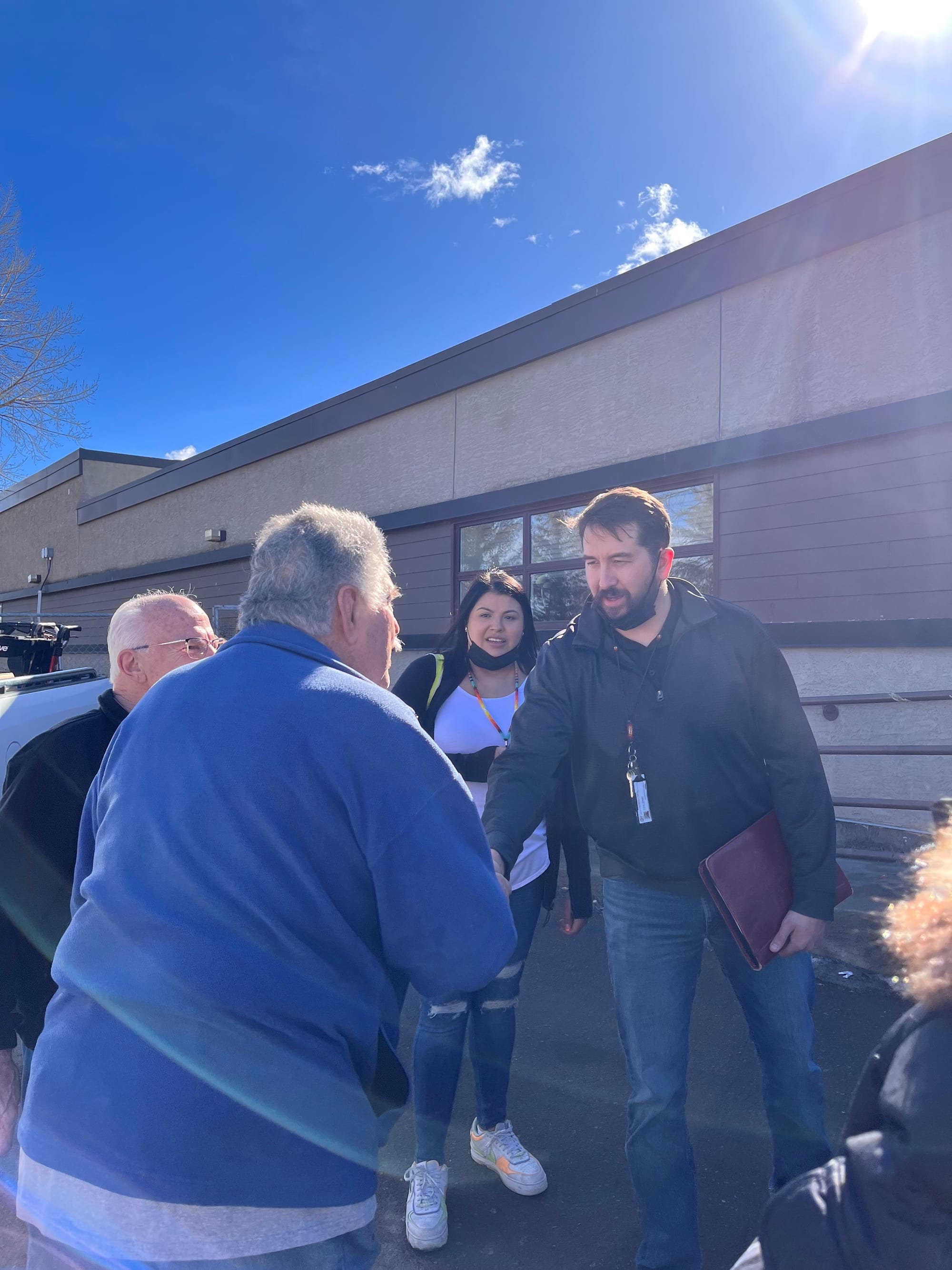
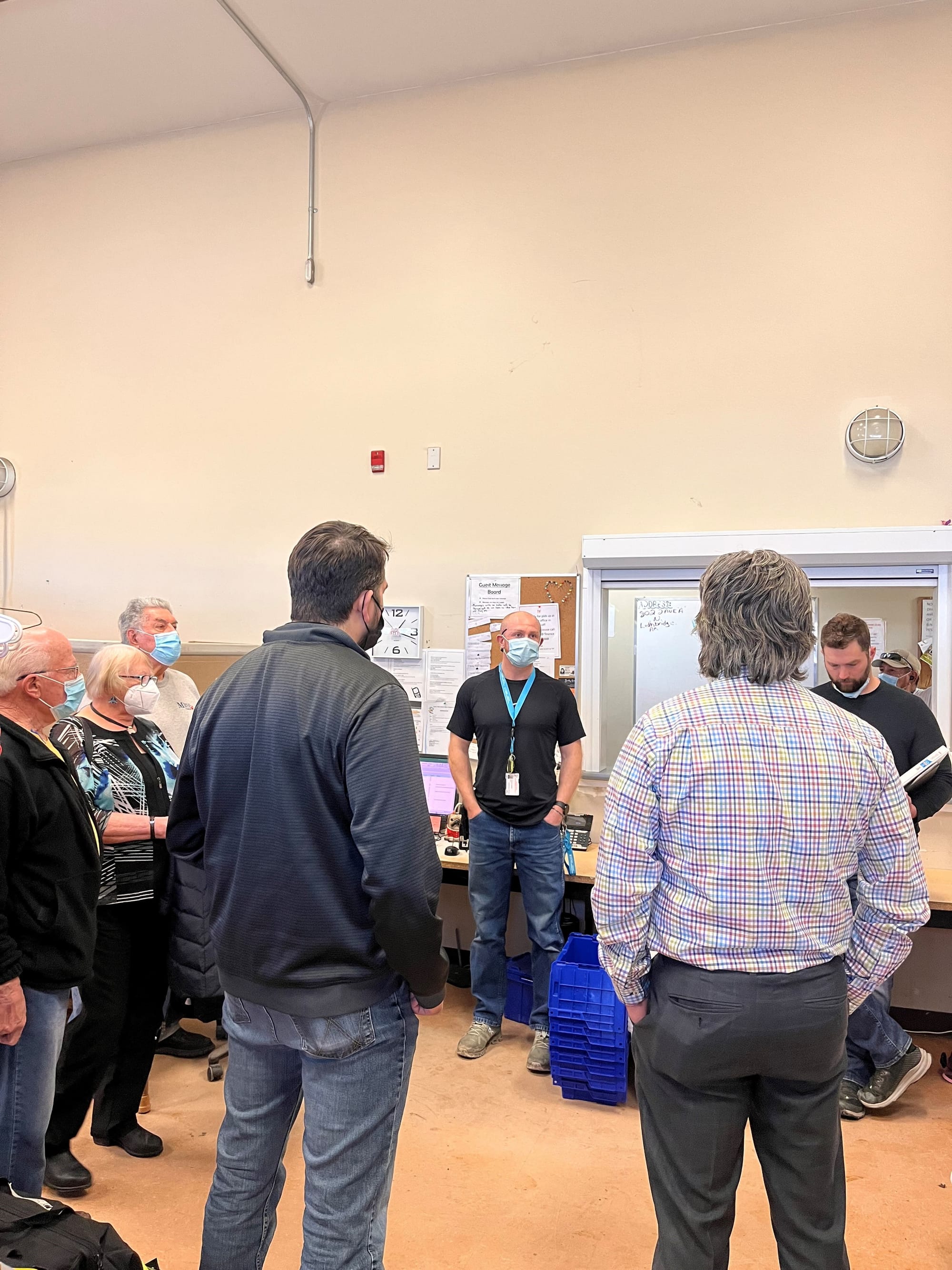
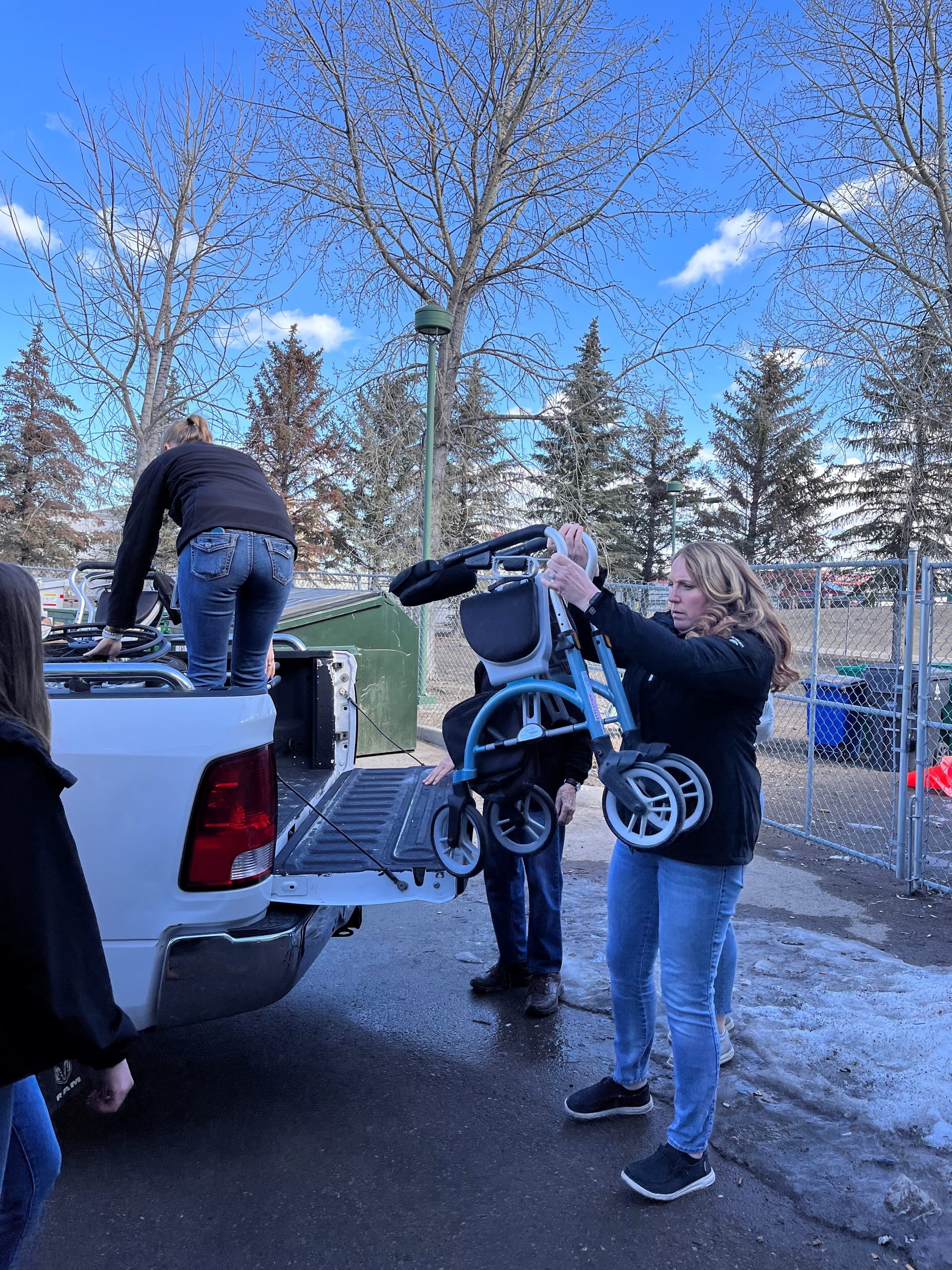
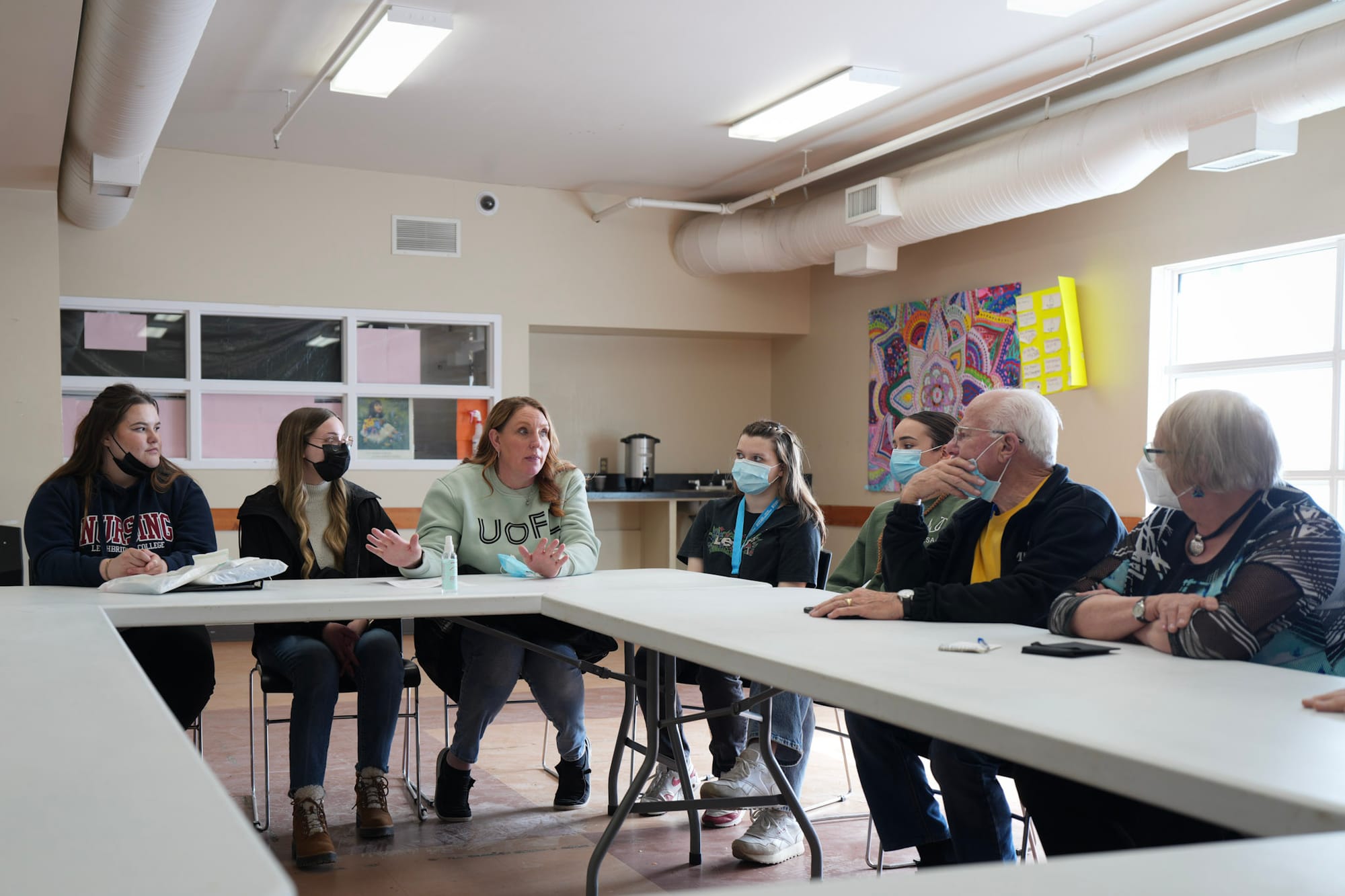
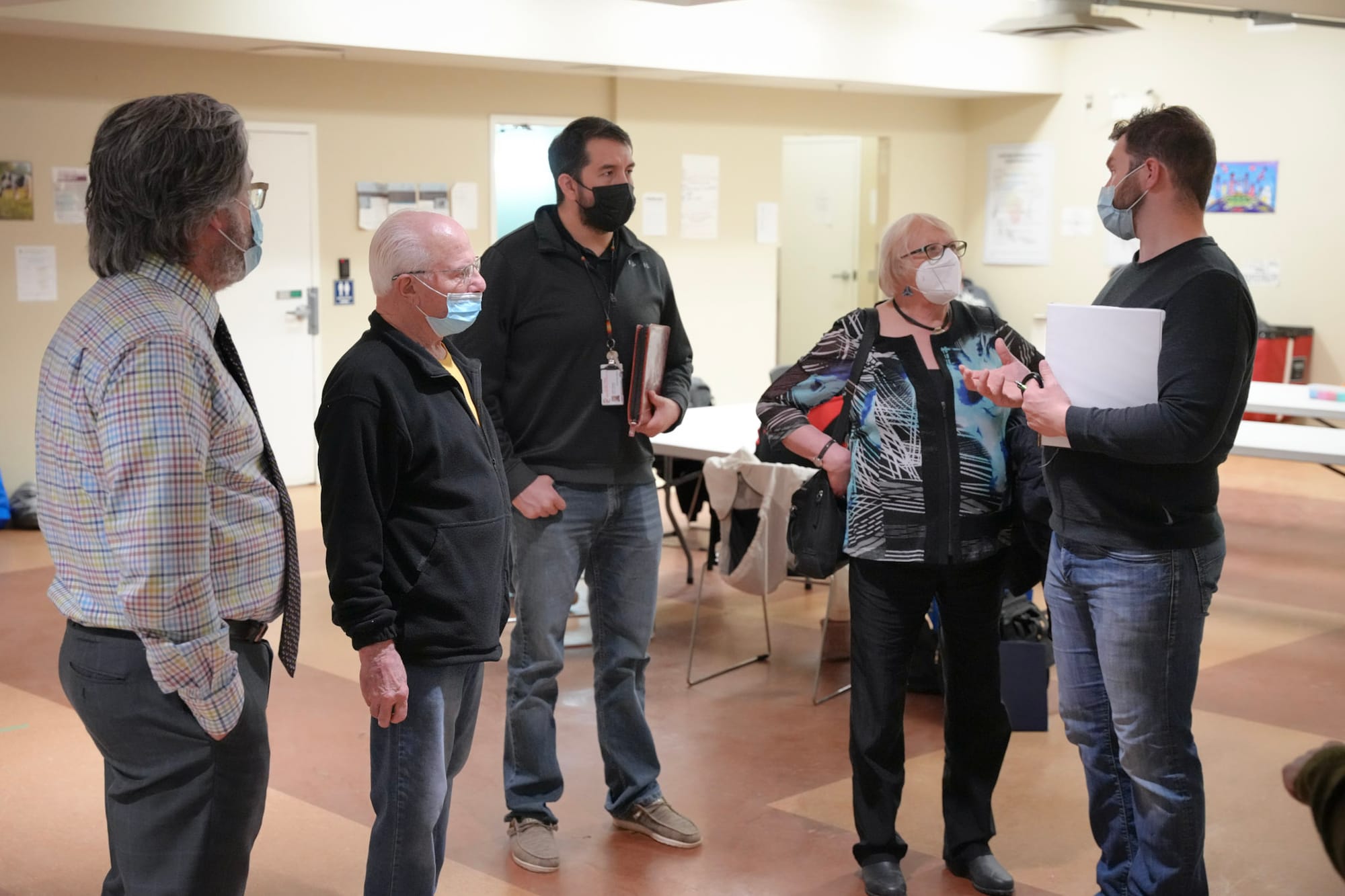
Medical Mercy visit the Lethbridge Wellness Shelter along side nursing students, Kash Shade, and Jon Doan